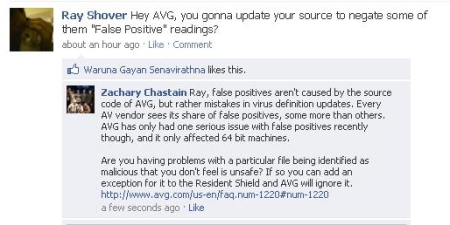
I’ve had a terrible experience with a company called Yext. Their tagline is “Bringing the power of internet advertising to all local businesses” The business model makes absolutely no sense. Basically they’re an advertising service that was supposed to bring in new customers to my business at a fixed rate per customer. One of Yext’s account representatives called me about a year ago to get me signed up. That’s one phone call I wish I had never answered. The way the service was explained to me was that I would only pay them when they brought me a new customer. I would pay $30 for the first time this customer came to me, but after that I would never pay Yext another penny for that customer. And if that’s how it truly worked then this post would be titled something like “Why Yext is an invaluable tool for my small business,” or “achieve more with Yext!” or something along those lines. Unfortunately this is not the case.
My primary concern is of course the cost. If Yext really were bringing in new customers for me then $30 would be a reasonable expense for all the new customers I’d be bringing in, which leads to more referrals, repeat customers, and more income. However, I’ve ended up shelling out $120 so far without getting a single customer, or a single dollar, in return. You see, what the account representative failed to mention, among the things he selectively left out of his explanation of the service, was that their services are not guaranteed. So long as someone calls the Yext proxy phone number, which will connect them to my cell phone, so long as they mention the word computer it’s going to cost me $30. That’s right, even if I don’t actually get a customer from the call, I’ve still got to fork over my money to Yext.
Now, of course that’s also my fault for not reading the fine print. Anytime you’re dealing with a snake-oil salesman, they’re going to explain it one way, and the fine print in the terms and conditions are going to explain it a different way. But in my defense, I specifically asked the man “is there any catch to this,” “are you leaving anything important out,” and “are there any more hidden costs I should know about.” I was lied to when he answered my questions. I was pretty happy with their service at first. I got mostly “junk” calls from Yext, for some reason a lot of people seemed to think that because I can fix a computer I can fix a refrigerator. But they didn’t bill me for them, and it wasn’t really costing me anything, but they had put my information on a lot of different sites and some “partner networks” that I normally couldn’t have gotten my info on anyway, so it always had the potential to bring in some profit, and it wasn’t hurting me.
The problems started when Yext’s service actually started doing what it was supposed to, getting me phone calls relevant to my business. I know that seems like a strange thing to say, but try to follow my logic here. Up until I started using Yext I got all my customers from referrals from current customers, even my business clients! (To be more accurate it’s still that way, even with Yext.) So, I had never had to deal with the issue of people off the street calling for a price check, comparing me to everyone else, and then going with the guy who offered to do it for next to nothing. It’s easy for me to retain clients when I’ve worked for them, or when someone I’ve worked for has personally recommended me to them, because those people know how knowledgeable I am, how hard I work, and how I always go above and beyond to provide the best work and customer service to my clients. However, it’s not so easy to get clients in the door when all they’re asking for is a number, and then comparing it to some numbers from other guys and going with the lowest common denominator.
So, not foreseeing calls like that which were dead ends, and not being armed with the knowledge that any call which mentions some key words like “computer” would be billed at $30 a piece, I was very surprised to find I was being billed for simply taking a call.
Yext’s business model is ridiculous! This would be like me billing people a $30 fee just for a price check call, even if I don’t actually provide any valuable service to them. In fact that’s exactly what it is. The only feasible way that I could continue using Yext’s services is if I did charge a ridiculous fee like that.
One thing that really got me was that I was billed for a call from this confused old lady who apparently had found my number on the Internet and mistook me for a guy who usually did her computer work. She lived outside my service area as well. Of course this didn’t lead to any work for me, only another $30 expense.
The other really big issue with Yext is that they will say anything to get you on board and keep you on board, but they’re terrible at keeping the promises they make, or just refraining from flat out telling lies to you. Let me spell out to you the various deceptions and incompetence I’ve been faced with from the people at Yext.
- I was told there were no hidden cost, yet when I called Yext about the charges, I was informed that their services were not guaranteed. Well, perhaps that’s something you should mention. Explain it as, you pay per call, rather than you pay per customer, that’s a much more accurate description than I was given.
- Hidden costs again. I was told they would waive the $10 monthly service charge to make up for their abysmal service. My response was “What damn service charge? I haven’t been giving you any money up until now.” Apparently because I hadn’t been getting “qualified calls” (billable calls) they weren’t charging me this yet. But since I was getting these useless calls they could bill me for this on top of the calls now.
- When the account representative setup my account for me, I asked him to set it up so that I would have a 20 mile service area. When I contacted Yext customer service about the bs charges they informed me I had a 5 mile service area. 5 miles. I live in a semi-rural area. 5 miles is nothing out here.
- I also discovered that I was listed on something called the “Google Click to Call Network.” Evan, the “customer specialist” I spoke with, informed me of this. He described it as something where people often didn’t even know what they were calling about, as in, they don’t know what kind of service I provide when they call. That explains all the annoying calls about refrigerator repair. What it doesn’t explain, however, is how it looks good for a company which is charging me per call to, without my knowledge, sign me up for a marketing service networking where people are blindly calling me and have no idea what I actually do. Seems like a way to increase call volumes without adding value at the expense of their customers to me. They removed me from this network when I complained about the service I was receiving from them in addition to waiving the maintenance fee.
- This is probably the most shocking part of it all for me. What I’m paying Yext for is pretty clear. To post my information across several online sites that display information for services, monitor those sites for reviews, and I pay them when I get new customers (sorry, when I get any calls at all). Yet when I started poking around on the different accounts to see why I wasn’t getting any value out of this service, I found that most, if not all, of the account were half-assed filled out. Most only had my business name, number, and hours of operation. None of the other info I provided to them or on my own accounts was shared. I mean, come on! This is the main thing I’m paying Yext for, to create, fill out, and monitor these accounts so I don’t have to. And they weren’t doing it.
To summarize, I find Yext to be a terrible fit for my business. I was lied to when I was signed up, empty promises were made to me when I raised concerns with their support staff when I started having problems, while they did try to make a difference by waiving the monthly fee and taking me off this network that was fraudulently inflating my call volume, in the end it just didn’t make a difference. They didn’t really do what they told me they would, which is something that I expect from people I do business with, clarity and honesty.
I would recommend that you stay away from Yext if you’re a small business. Their business model of charging you $30 per call and $120 a year on top of that for something you could do better yourself for free in 5 minutes just doesn’t work. Maybe if they charged something more reasonable, like a few dollars per call, then it would fit in a budget. However, as long as they aren’t posting the information your provide to them, aren’t setting up your service areas properly, overcharging you for customers they’re not bringing in, and omitting facts to sign you up, they’re not going to be adding value to your business. If you can afford to hemorrhage money for simple phone calls, then go for it, but if you’re running your business on a budget (and who isn’t?) then this company is not for you.
When I contacted their support to reverse the charges and cancel my service, they convinced me to stay with empty promises and some small discounts. But even after they removed me from this “Click To Call” network and waived my service fee, it’s still to expensive to keep when it’s not adding any value. They refuse to give me my refund, so instead I’ll share my experiences with this company with all my readers and the Internet at large. I hope the $120 they refuse to refund is worth it. I’m calling tomorrow morning to cancel my account before they can get their greedy hands stretched out again for my hard earned money in return for absolutely nothing. The moral of this story? Read the fine print, and be careful who you do business with. There are good marketing companies out there, but Yext isn’t one of them.
I’m not the only one to be hurt by Yext either. Check out this comment where Yext actually damaged the brand of one of their clients over $165. Damaged the brand of a client over $165, consider that for a moment. Are these the kind of people you want to be in business with? Here’s yet another comment where yet another business was not informed of Yext’s actual policy on calls that don’t generate business, and refused a refund upfront for these bogus charges. It was not explained to them upfront, this is how Yext operates, ripping small businesses off for as long as they can until they drop them.
Have you had a bad experience with Yext? Or know someone who has? I invite you to post a link to your own blog post about a bad experience with Yext in the comments below or share your experiences in the comments. I want to hear from you!
Update!: An interesting thing happened today before I had a chance to contact Yext Customer Service. Just several hours after posting this blog and sharing the link on their Facebook page, without ever talking directly or indirectly to anyone at Yext, I was issued a refund confirmation from Yext for $60, the cost of the latest “qualified calls” I was being billed for that never brought me any work. It’s not everything that I’m out of, but it is at least half. And I must admit, when you don’t even have to contact customer service to get your refund, that’s some top notch customer service. I’ve got to give them some credit for that. Unfortunately, I had requested a refund the first time this happened and was simply told, “Our services are not guaranteed.” So, it seems the only reason I’m getting a refund is that I got a little more vocal than they cared for. Still, I appreciate the refund, I really can’t spare any money right now without some kind of return on that investment. I do appreciate this turn of events and the excellent customer service that I was eventually provided with, but I will still be canceling my Yext service tomorrow morning. No matter how good the customer service is, it can’t make up for the fact that Yext and their business model just don’t work for my business. Thanks for being considerate and providing me with my refund Yext! I appreciate it, and no hard feelings, but this is where we go our separate ways.
Thank You,
Zachary Chastain
RunPC Computer Repair




 Posted by Zachary
Posted by Zachary 











